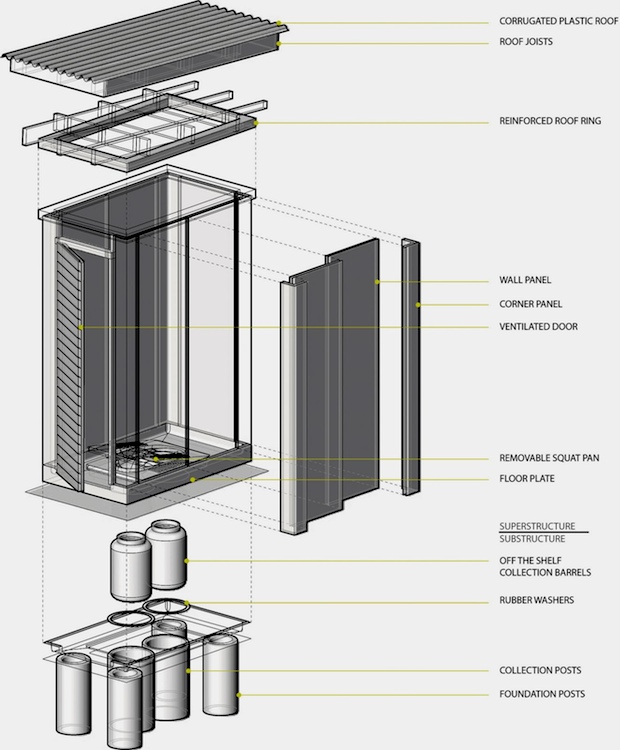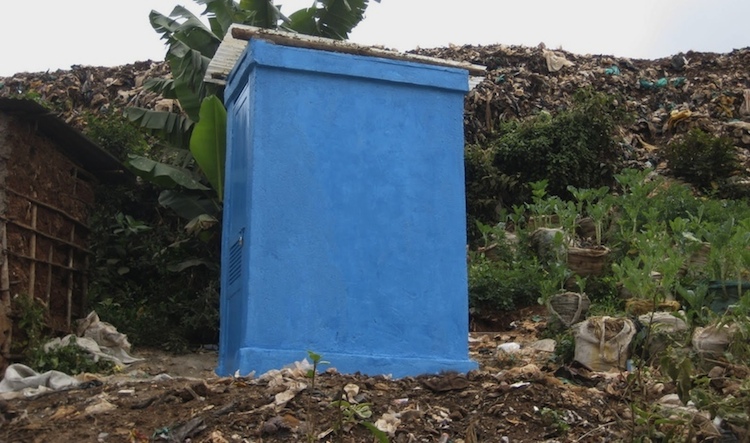Here’s another one I uncovered today. It’s this kind of thinking that will transform our fragile planet and benefit everybody in the process.
Be sure to also check out Co.Design for more commentary on innovative design projects around the world. Or follow John whose focus is ecological/green ventures. Excellent site!
Source: Co.Design
Publication date: November 22, 2010
By John Pavlus
Sanergy, a startup founded by two students at MIT’s Sloan School of Management, aims to redesign the slum-sanitation ecosystem with a jolt of economic self-sufficiency. They plan to turn pit latrines into just one component of a vertically integrated business that would not only make clean sanitation more commonplace but create local jobs and a sustainable energy source for the community.
First, the latrines themselves: Sanergy aims to build $200 modular “sanitation centers” that are owned and operated by local entrepreneurs in a franchise business model. That incentivizes the community to use and maintain the centers as a valuable part of their local economy. The facilities themselves are upgraded as well — manufactured in a fabrication lab at the University of Nairobi, they’re designed to be instantly visible from far away, sanitary, and safe.

Each sanitation center needs about 75 people to use it daily in order to be economical. (Currently they’re getting about 10 to 20 visits per day.) But that’s just the “san” part of Sanergy’s business model. The energy part comes from a value chain that employs local contractors to transport latrine waste to a processing facility that will use microorganisms to turn it into biogas (for cooking and electricity generation) and organic fertilizer. Those products, in turn, can then be sold back to the community. MIT estimates that such a model could pump up to $75 million back into Kenya’s economy, if Sanergy’s system were implemented in all of the country’s slums.

That’s a tall order, so Sanergy is starting small: they’re currently raising venture capital to fund a pilot program next summer comprising 25 sanitation centers.
